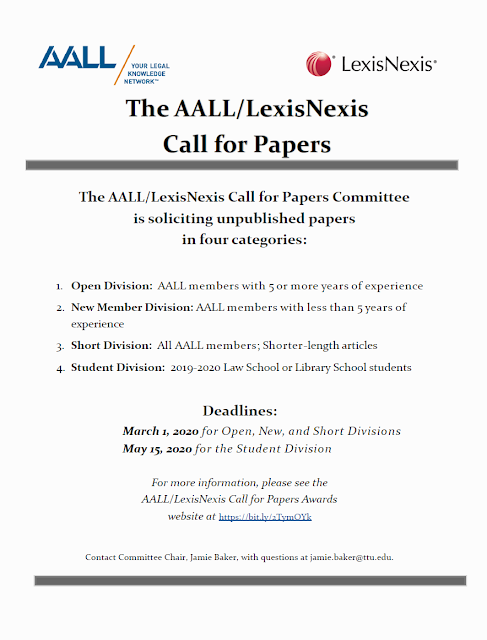Using Artificial Intelligence to Answer Questions
IBM's Watson is being used in a variety of arenas to test AI in different capacities. We know that ROSS (a Watson progeny) is currently in development for legal research, and Watson has been used in medicine and cooking, for example.
The WSJ is reporting that Watson, "Jill Watson" as it were, has been a TA in an online course at Georgia Tech since January 2016. “Jill,” as she was known to the artificial-intelligence class, had been helping graduate students design programs that allow computers to solve certain problems, like choosing an image to complete a logical sequence.
And how exactly did "Jill" work?
Last year, a team of Georgia Tech researchers began creating Ms. Watson by poring through nearly 40,000 postings on a discussion forum known as “Piazza” and training her to answer related questions based on prior responses. By late March, she began posting responses live. She answers only if she has a confidence rate of at least 97%.
“She was the person—well, the teaching assistant—who would remind us of due dates and post questions in the middle of the week to spark conversations,” said student Jennifer Gavin. Ms. Watson—so named because she’s powered by International Business Machines Corp.’s Watson analytics system—wrote things like “Yep!” and “we’d love to,” speaking on behalf of her fellow TAs, in the online forum where students discussed coursework and submitted projects.
Time after time, the students commented that “It seemed very much like a normal conversation with a human being,” or “I didn’t see personality in any of the posts, but it’s what you’d expect from a TA, somewhat serious and all about giving you the answer.”
TA robots powered by Watson may help revolutionize online learning by providing answers to routine questions. As Mr. Goel, the professor in the class noted, “Our TAs are getting bogged down answering routine questions," noting that students in the class typically post 10,000 messages a semester.
Mr. Goel estimates that within a year, Ms. Watson will be able to answer 40% of all the students’ questions, freeing the humans to tackle more complex technical or philosophical inquiries such as, “How do you define intelligence?”
As I contemplate how ROSS will change the landscape for law librarians, I am optimistic that "he" will help us answer routine questions like finding a source by citation. And we will be freed up to tackle more complex technical inquiries, such as performing a 50-state survey on sunshine in litigation laws or laws that are equivalent in effect.
The WSJ is reporting that Watson, "Jill Watson" as it were, has been a TA in an online course at Georgia Tech since January 2016. “Jill,” as she was known to the artificial-intelligence class, had been helping graduate students design programs that allow computers to solve certain problems, like choosing an image to complete a logical sequence.
And how exactly did "Jill" work?
Last year, a team of Georgia Tech researchers began creating Ms. Watson by poring through nearly 40,000 postings on a discussion forum known as “Piazza” and training her to answer related questions based on prior responses. By late March, she began posting responses live. She answers only if she has a confidence rate of at least 97%.
“She was the person—well, the teaching assistant—who would remind us of due dates and post questions in the middle of the week to spark conversations,” said student Jennifer Gavin. Ms. Watson—so named because she’s powered by International Business Machines Corp.’s Watson analytics system—wrote things like “Yep!” and “we’d love to,” speaking on behalf of her fellow TAs, in the online forum where students discussed coursework and submitted projects.
Time after time, the students commented that “It seemed very much like a normal conversation with a human being,” or “I didn’t see personality in any of the posts, but it’s what you’d expect from a TA, somewhat serious and all about giving you the answer.”
TA robots powered by Watson may help revolutionize online learning by providing answers to routine questions. As Mr. Goel, the professor in the class noted, “Our TAs are getting bogged down answering routine questions," noting that students in the class typically post 10,000 messages a semester.
Mr. Goel estimates that within a year, Ms. Watson will be able to answer 40% of all the students’ questions, freeing the humans to tackle more complex technical or philosophical inquiries such as, “How do you define intelligence?”
As I contemplate how ROSS will change the landscape for law librarians, I am optimistic that "he" will help us answer routine questions like finding a source by citation. And we will be freed up to tackle more complex technical inquiries, such as performing a 50-state survey on sunshine in litigation laws or laws that are equivalent in effect.


I have been informed that Facebook is now using artificial intelligence to become a better search engine:) On the other side, the AI creates two significant problems that must be solved! Well, what's its impact on education then? You're welcome to view an online article, which is now available at http://bigessaywriter.com/blog/artificial-intelligence-impact-on-education.
ReplyDelete